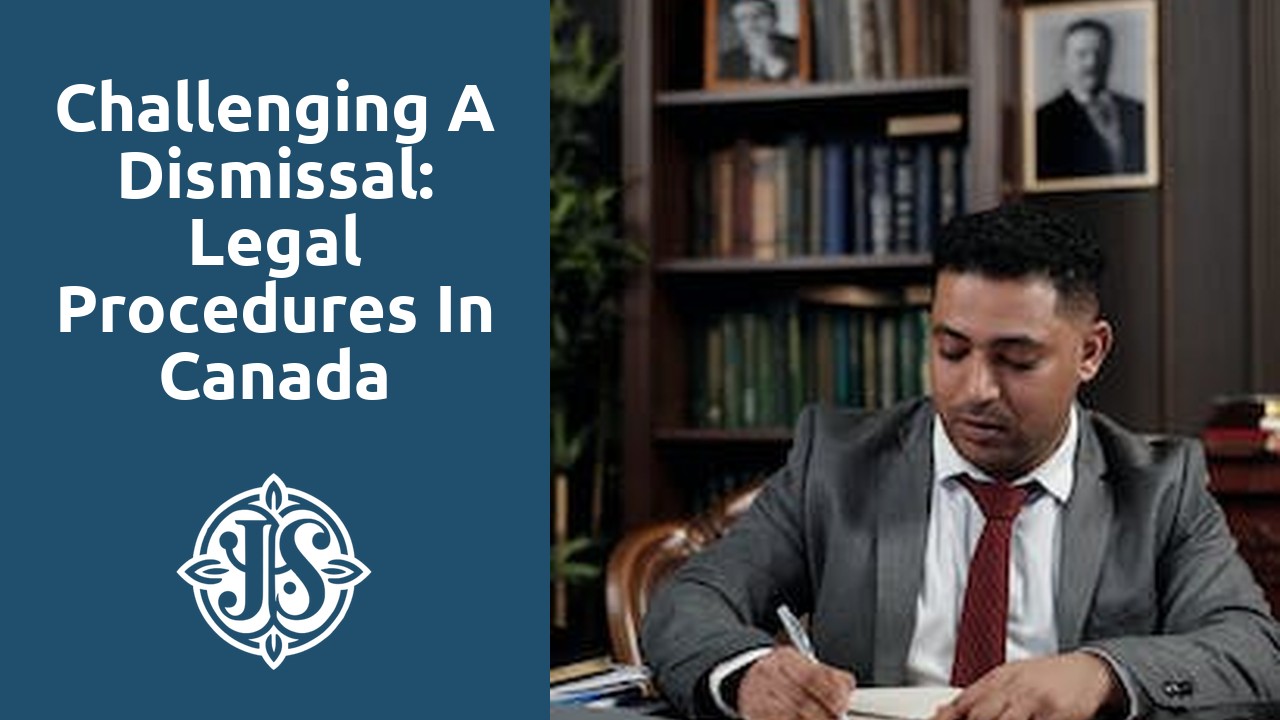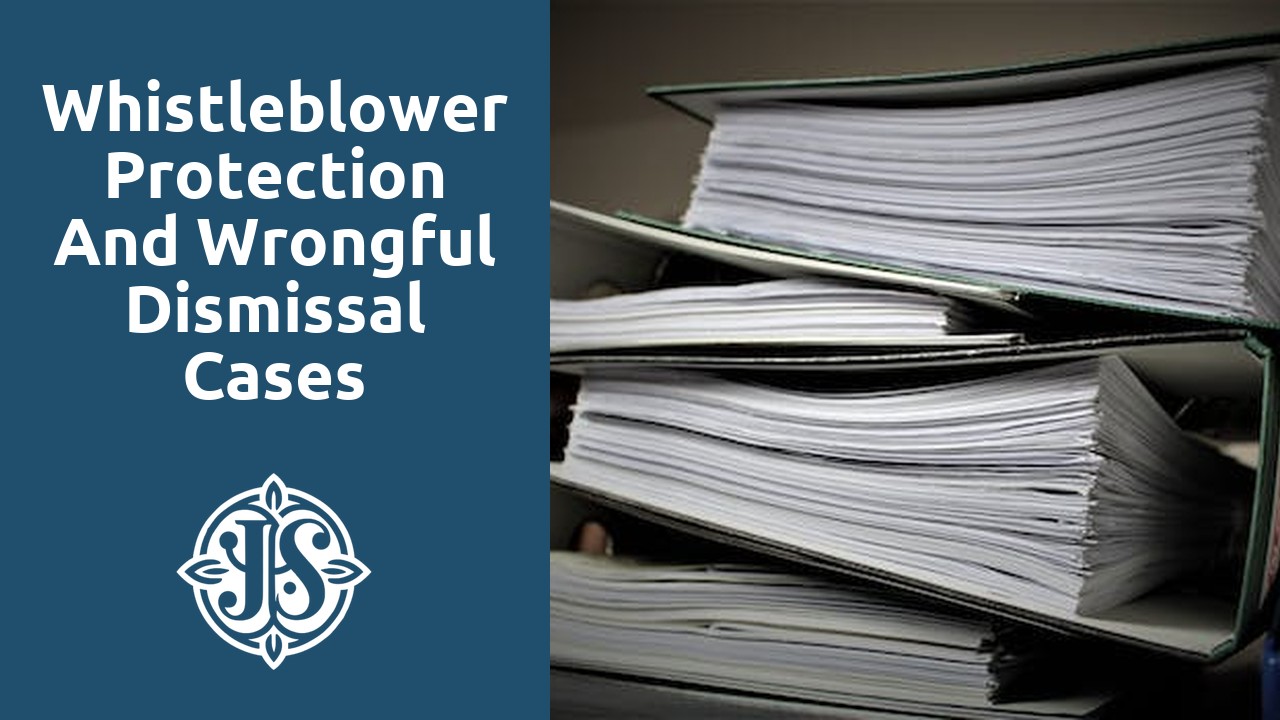Contents
- 1 Understanding Your Rights: Navigating Employment Termination in Canada
- 2 Unveiling the Legal Framework: Exploring Dismissal Laws in Canada
- 3 Seeking Justice: Exploring Your Options after Wrongful Termination
- 4 Building Your Case: Essential Steps to Challenge Employment Dismissal
- 5 The Role of Workplace Policies: Examining their Impact on Dismissal Disputes
- 6 Unpacking the Evidence: Gathering and Presenting Proof in Dismissal Cases
Table Of Contents
Understanding Your Rights: Navigating Employment Termination in Canada
When it comes to employment termination in Canada, it is crucial for individuals to have a clear understanding of their rights. Although each province may have its specific regulations, the basic principles under the federal employment law remain consistent. In Canada, employers have the right to terminate an employee’s contract for legitimate reasons. However, it is essential that they adhere to the appropriate legal procedures in order to avoid any wrongful dismissal claims.
Employees who find themselves facing termination should be aware that they have certain rights and protections under the law. These rights include the right to reasonable notice or pay in lieu, protection against discriminatory practices, and the right to pursue legal action if they believe they have been wrongfully dismissed. Navigating employment termination can be challenging, but having an understanding of one’s rights can provide individuals with a foundation to protect themselves and seek justice if necessary.
Unveiling the Legal Framework: Exploring Dismissal Laws in Canada
Canadian employment law provides a solid legal framework for dealing with dismissals, ensuring that both employees and employers are protected. Dismissal laws in Canada are primarily governed by provincial and federal legislation, as well as common law principles. Each province has its own legislation, but the basic principles surrounding dismissing an employee are quite similar across the country.
Under Canadian law, employers are required to have just cause for terminating an employee’s employment. Just cause refers to a valid reason that is directly related to the employee’s conduct or performance. Examples of just cause may include theft, chronic absenteeism, or insubordination. However, even without just cause, employers can terminate an employee’s employment by providing appropriate notice or payment in lieu of notice as outlined in the applicable legislation or employment contract. It is essential for both employers and employees to have a clear understanding of the dismissal laws in their jurisdiction to navigate employment termination disputes effectively.
Seeking Justice: Exploring Your Options after Wrongful Termination
If you believe you have been wrongfully terminated from your job, it is crucial to understand the options available to seek justice. The first step is to consult with an employment lawyer who specializes in wrongful termination cases. They will be able to assess the details of your case and provide expert advice on the best course of action to take.
One option that may be available to you is to file a complaint with the appropriate government agency, such as the Ministry of Labour or the Human Rights Commission. These agencies have the power to investigate and mediate disputes between employees and employers, and may be able to assist you in resolving the issue without going to court. Alternatively, you may choose to file a lawsuit against your former employer in civil court, seeking compensation for your losses and damages. It is important to note that the legal process can be complex and lengthy, and having a knowledgeable lawyer by your side can greatly increase your chances of success.
Building Your Case: Essential Steps to Challenge Employment Dismissal
When challenging an employment dismissal, it is essential to build a strong case to increase your chances of success. The first step is to gather all the relevant documents and evidence that support your claim. This includes your employment contract, performance reviews, emails, and any other written communication that is pertinent to your case. It is crucial to organize this evidence in a systematic and easy-to-reference manner to facilitate the presentation of your case.
Once you have compiled the necessary documentation, it is important to consult with an experienced employment lawyer who can provide you with guidance and support throughout the process. They will review your case, assess the strength of your evidence, and help you develop a strategy to challenge your dismissal. A lawyer will also be able to advise you on the legal aspects of your case, including any time limitations and the various legal avenues available to you. Remember, building a solid case requires careful preparation and expert guidance to present the strongest argument possible.
The Role of Workplace Policies: Examining their Impact on Dismissal Disputes
Workplace policies play a crucial role in determining the outcome of dismissal disputes in Canada. These policies are designed to set out the expectations and guidelines for both employers and employees, ensuring a fair and equitable working environment. When it comes to dismissal cases, the presence or absence of workplace policies can greatly impact the outcome.
One of the key ways in which workplace policies impact dismissal disputes is by providing clarity on acceptable behavior and performance standards. When an employee is dismissed, the employer must be able to demonstrate that the termination was justified and in line with company policies. If the policies are clearly defined and communicated to employees, it becomes easier for both parties to understand what is expected of them. On the other hand, the absence or ambiguity of policies can lead to confusion and disagreements, making it harder to determine whether the dismissal was warranted. Therefore, having clear policies in place can help provide a framework and guidance for resolving dismissal disputes in a fair and transparent manner.
Unpacking the Evidence: Gathering and Presenting Proof in Dismissal Cases
When it comes to challenging a dismissal in Canada, gathering and presenting evidence is crucial to building a strong case. This evidence can help prove that the termination was wrongful or that the employer did not follow proper procedures. It is important to gather all relevant documents, such as employment contracts, pay stubs, performance evaluations, and any written communication regarding the dismissal.
In addition to documents, witness statements can also play a significant role in supporting your case. These statements should be obtained from colleagues, supervisors, or anyone who has firsthand knowledge of the circumstances surrounding your dismissal. It is essential to ensure that these witnesses are willing to provide a written statement or testify on your behalf if required.
Related Links
Wrongful Dismissal and Remote Work: Emerging Legal Considerations
The Future of Real Estate Transactions: Digital Contracts and E-Signatures




